Kerala Man Quit IAS & Built India’s Biggest Manufacturer of Blood Bags
After selling his stake in Terumo Penpol Ltd, which is one of the largest makers of high-tech bio-medical devices in the world, Balagopal Chandrasekhar went onto support a plethora of social development initiatives in Kerala and Manipur, where he once served as an IAS officer.
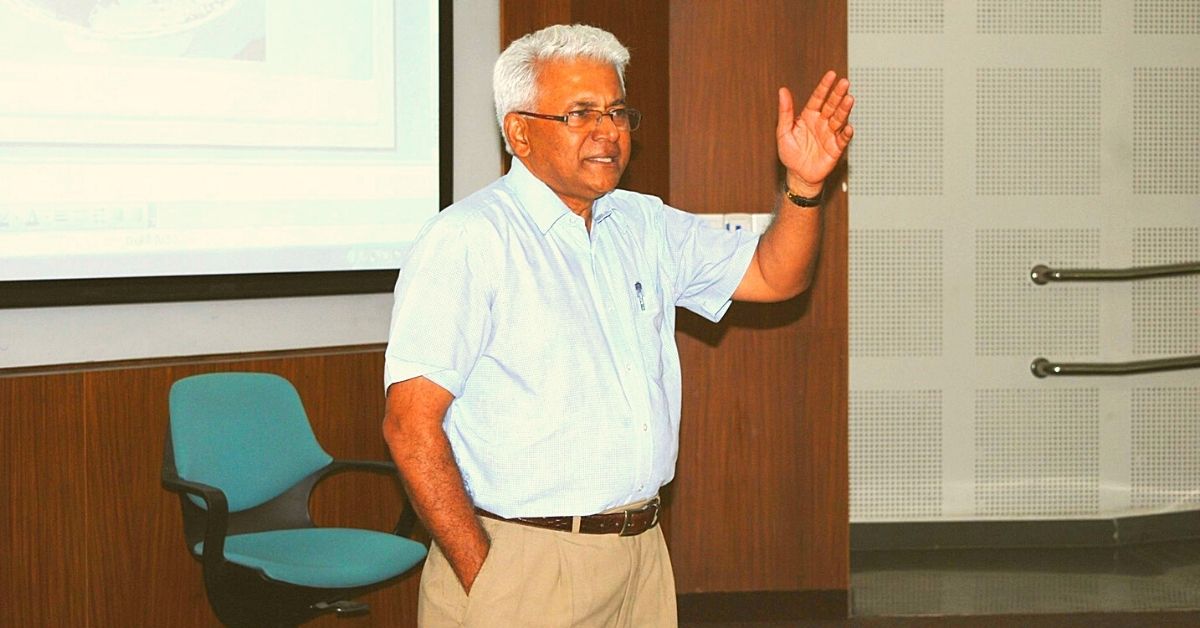
How many of you can honestly say that a one-hour conversation changed the entire course of your life?
In May 1983, Balagopal Chandrasekhar visited the Sree Chitra Tirunal Institute for Medical Sciences & Technology in Thiruvananthapuram out of curiosity after reading news reports that its research and development (R&D) wing had indigenously developed blood bags to facilitate blood transfers.
At the time, he was a 30-year-old officer of the Indian Administrative Service (IAS).
There he met Professor AV Ramani, who at the time was heading the institute’s R&D wing. It was a serendipitous meeting, but the conversation that followed inspired Balagopal to quit the IAS a few months later and start his own venture Penpol (Peninsula Polymers) Limited. In 1999, Penpol entered into a joint venture with the Terumo Corporation of Japan. Today, Terumo Penpol Ltd is the biggest manufacturer of blood bags in India and one of the world’s biggest makers of high-tech bio-medical devices.
So, what did Professor Ramani tell Balagopal on that fateful morning of May 1983?
Speaking to The Better India, Balagopal recollects the passionate arguments Ramani made in favour of local industry leveraging the fruits of Indian science.
“Professor Ramani believed that Indian industry was missing out on game-changing research of national institutions like the Sree Chitra Institute because of the false notion that Indian scientific and technological capabilities were of inferior quality. This false notion, he believed, prevented many Indian technologists and industrialists from taking their ideas further. Citing the example of the Sree Chitra Institute, he said that it was making bio-medical devices that very few companies in the world could access. He felt that anyone starting a venture based on the technologies they were developing would be able to get into the ground floor of a vast and expanding market of healthcare products,” recalls Balagopal.
It’s imperative to note that this conversation was happening in the early 1980s, when economic policy was predominantly driven by ideas like import substitution and saving foreign exchange. By having a domestic manufacturer making high quality blood bags, India could enable a quality blood transfusion service without losing too much foreign exchange.
“However, my main motivating factor was not saving foreign exchange, but taking Indian science and technology to the world. I had finally found meaning and purpose in my life,” he recalls. He quit the IAS just six years into the job when the private sector did not offer many employment opportunities. Moreover, Balagopal was venturing into a market he knew little about. But it was other mitigating circumstances that fuelled this decision.
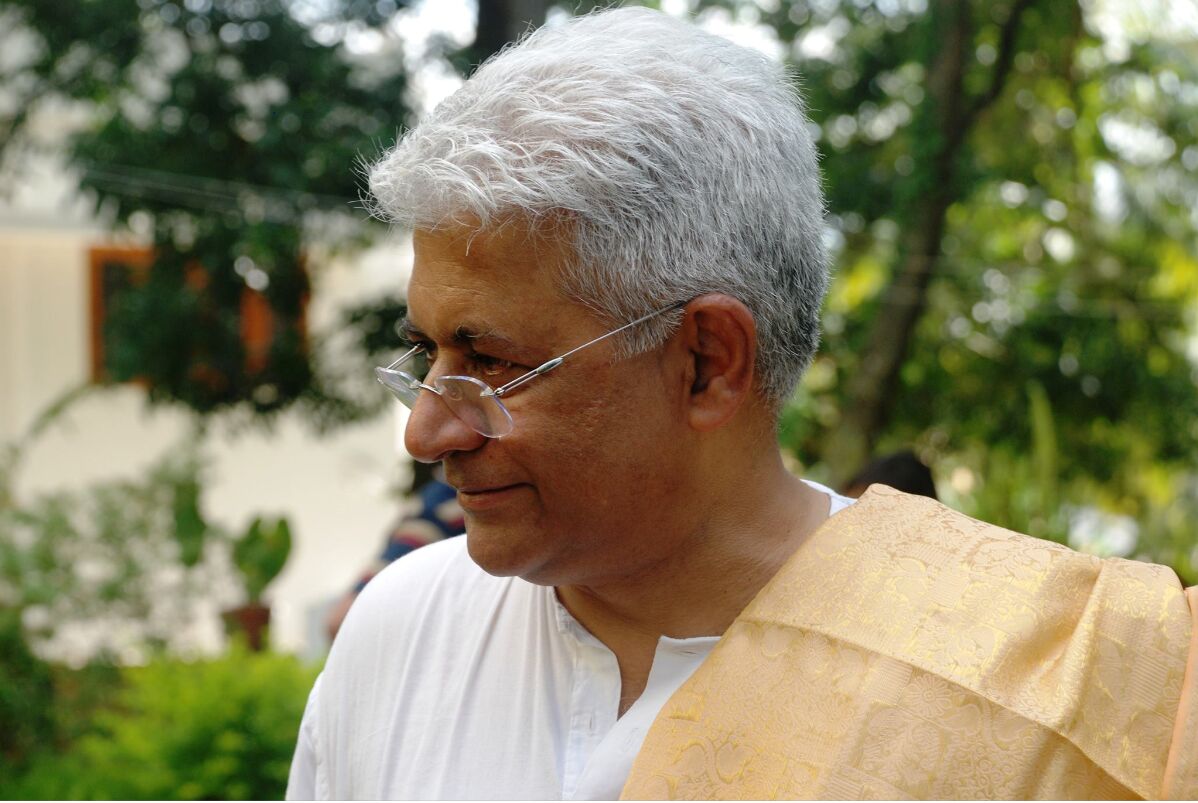
Finding His Way
Born on 2 October 1952 in Kollam, Kerala, Balagopal grew up in relative privilege. Spending most of his childhood in rubber and tea estates across Wayanad and the Nilgiri Hills, where his father was a manager, Balagopal attended boarding school at Lawrence School, Lovedale, before pursuing a Bachelors’ degree in economics from Loyola College, Chennai. He would go on to obtain his Masters’ degree in economics from Madras University before proceeding to a PhD programme at the University of Kerala.
While pursuing a PhD, he fulfilled his parents’ wish of passing the UPSC exam in 1976, and by July 1977 he joined the IAS. Allotted the Manipur cadre, Balagopal was first posted as a trainee in Tamenglong district. This was followed by his first posting as a sub-divisional officer (SD) in Ukhrul district before a similar stint in Imphal West.
But the untimely death of his younger brother, Ram, during a training exercise as a recently commissioned officer of the Indian Army in 1979, put a real spanner in the works. With matters at home in “a real mess”, Balagopal had applied for an indefinite leave. However, his seniors advised against such a move this early in his career. So, by the middle of 1980, they helped him obtain an inter-cadre deputation back to Kerala.
There he would serve as SDO of Kollam, following which he was posted in a public service undertaking under the Government of Kerala. After finishing his tenure in Kerala, he returned to Manipur, but things weren’t quite the same anymore. To make matters worse, his father had fallen very ill, and with a younger brother still in high school, there was no one to look after his aging parents. Besides these mitigating circumstances, however, doubts had begun to creep in about whether serving in the IAS was the life he wanted.
“Like many youngsters of my generation, there was very little clarity on what we wanted to do with our lives. My decision to get into the IAS was driven by my parents’ desire that I join the service. But I enjoyed my time in the IAS too and even wrote three books about it,” he recalls.
The meeting with Prof Ramani changed all that. He now had a sense of purpose. Fortunately, even his parents supported his decision to quit the IAS and start a new venture. In fact, his father even offered his savings to fund this new venture.
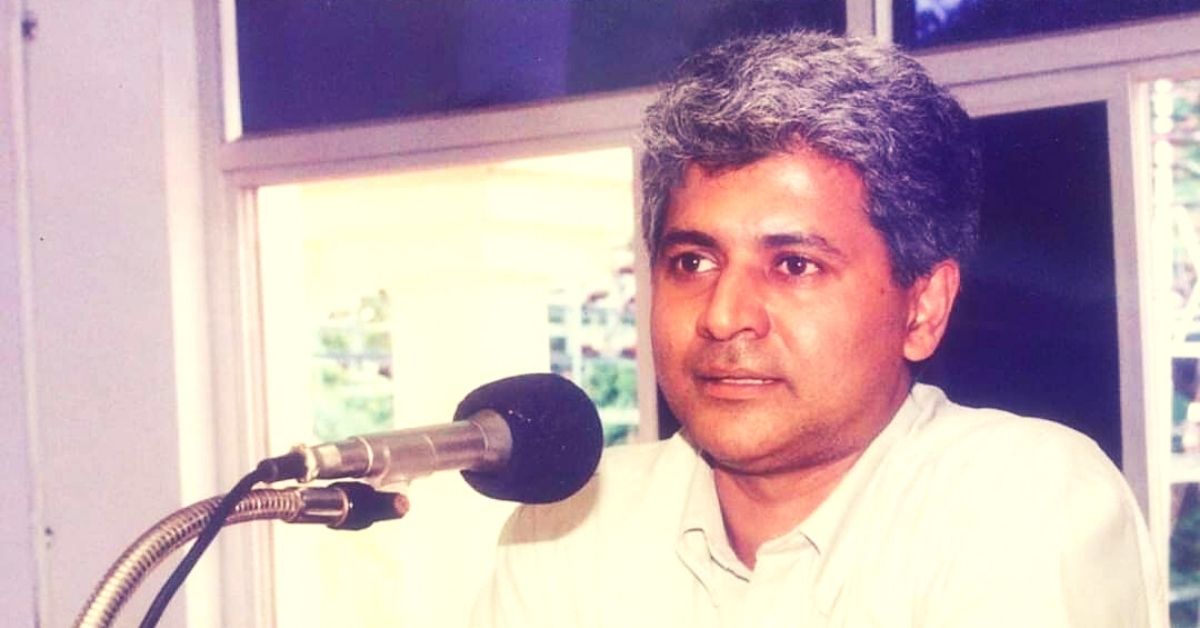
Entrepreneur Dreams
Incorporated in 1985, Penpol Limited’s first plant to manufacture blood bags was commissioned in 1987 with the total project cost standing at a little over Rs 1 crore.
Apart from Balagopal, the equity to construct this plant came from the Kerala State Industrial Development Corporation (KSIDC), National Research Development Corporation (NRDC) and the Industrial Development Bank of India’s (IDBI) seed capital scheme. Loans, meanwhile, also came from the KSIDC and the State Bank of Travancore.
In its first phase (1987 to 1992/93), the company faced all kinds of problems related to scaling up the technological knowledge they obtained from the Sree Chitra Institute.
“Though the product looked fairly simple to make, we later understood why there were only six manufacturers of blood bags in the world. It’s a tough product to make. We learnt everything the hard way because the technological know-how was closely guarded by global multinationals dominating the field. There was barely any academic literature and we had no internet available at the time to seek answers. We had to learn by trial and error,” he says.
However, the company had a couple of things going for them.
They had Dr CSB Nair, a scientist and an experienced polymer chemist who had experience in developing intellectual property and patents, who was coaxed out of retirement.
Building a small team around Dr Nair, Balagopal delegated the task of monitoring the transfer of technology from the laboratory to industrial scale manufacturing to Dr Nair’s team. Liaising with the Sree Chitra Institute, Dr Nair asked the right questions and conducted regular experiments to ensure they got the blood bag technology right. Dr Nair was in his 60s when he joined Penpol. He retired from the company at 95, only a couple of months back.
More importantly, the company was willing to take risks, try new ideas and spend money on trials. But none of this would have been possible without the necessary support from financial institutions backing the venture.
“We ran up huge losses in the beginning. It was only the regular infusion of equity that kept our operations going. All the equity infusion came from these financial institutions. When I started out, my equity holding in the company stood at 40%. In five years time, it dropped to 10%. However, these institutions had enough faith in me to keep putting whatever amount was required to cover the losses because I did everything by the book,” he recalls.
Balagopal doesn’t hide the fact that this is an unusual story in Indian entrepreneurship. It took the company five years to develop a product of international quality. By 1993-94, the company entered the export market. For the next five years it developed a culture of continuous improvement, whether in the quality of labeling, packaging, flexibility of tubes, etc. Though the economic liberalisation of 1991 provided another jolt to their business.
With the Indian economy opening itself up, foreign players began entering the domestic market. Many global blood bag manufacturers got the necessary approvals from the government’s Foreign Investment Promotion Board (FIPB) to start their own plants in India. Now, Penpol had to compete with these major international players.
“We had to take a strategic call and I decided that if we can’t beat them, let us join them. So, I started talking to the big boys. This process began in the mid-1990s and by 1999, we signed a joint venture deal with the Terumo Corporation. They became part of the company by buying out all the financial institutions, leaving just Terumo, my brother C. Padmakumar, who was the executive director and I, the managing director. As part of the deal, our (brothers) shareholding grew to 26%. Terumo wanted to ensure that my brother and I had enough skin in the game to remain interested in the company,” recalls Balagopal.
The shareholding deal was attractive to the brothers. All further capacity expansion would be funded out of the preference capital so that the voting share percentage remains the same.
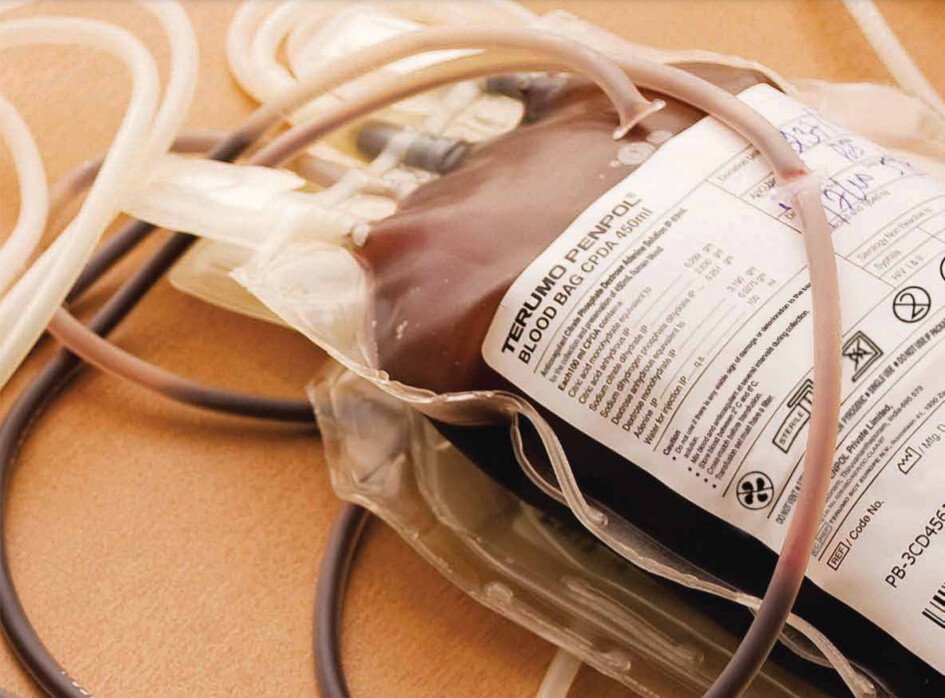
Capital and Culture from Japan, and Technology from India
Typically, any joint venture (JV) arrangement involving a large MNC, particularly a market leader like Terumo, will have three dimensions to it — financial security for capacity expansion, availability of high-grade technology and greater access to markets abroad.
The JV arrangement worked spectacularly in terms of finance. Over the next 10 years, the company underwent at least three rounds of capacity expansion.
“On the question of technology, however, there was a twist. The Japanese not only found that our technology was very good, but also very competitive. Our technology could produce high-quality blood bags at much more competitive prices than their own. It was a unique case of a Japanese company accepting the technological capabilities of their Indian partner. They not only refused to interfere in the manufacturing process, but all capacity expansion was centred on our indigenously developed technology,” he says.
On the question of greater access to international markets, it’s imperative to note that before the JV, Penpol’s blood bags had already passed very strict regulatory processes in different countries.
Terumo was a global market leader in blood bags before the JV. Although their products were of very good quality, they were getting priced out of certain markets because of the high cost of manufacturing. With Penpol’s indigenously developed technology, they could now enter markets that were otherwise closed to them.
However, what the Japanese brought to the table besides finance was a revolutionary working culture based on the principles of Kaizen, which means continuous improvement, and 5S, a series of steps a manager or employee can pursue to organise the workplace. The English translation of the 5S concept stands for sort, straighten, shine, standardise and sustain.
“We gained immensely from the quality and philosophy of their shop floor management system. We were able to learn all these things from the horse’s mouth because we had experienced technical persons from Japan living in Thiruvananthapuram who had taken up apartments in the city and were working full time in our factory,” he notes.
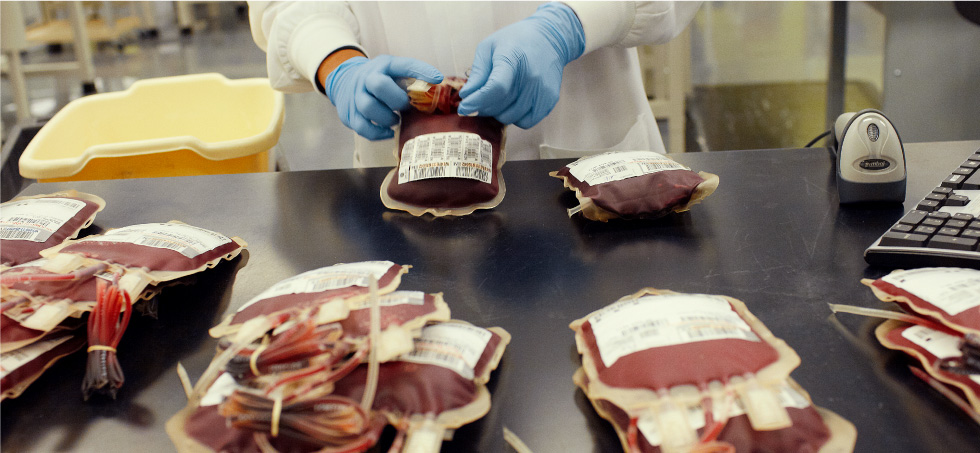
Retirement With a Purpose
Balagopal and Padmakumar eventually sold their stake in 2011. While Balagopal retired as Managing Director, his younger brother took on the post until his retirement last March.
When he started Penpol, Balagopal had 50 employees. By his retirement, the company had 1200 employees. Since its inception in 1985, the company has grown over 300 times under Balagopal’s tenure and sold blood bags in over 64 countries across the world. What would take the company a year to make in the 1980s, now takes them just two shifts in one day. That’s progress!
But long before corporate social responsibility (CSR), Balagopal ensured that Penpol would closely engage with village panchayats living in the vicinity of their factory. By the late 1990s, the company adopted four primary and upper primary schools, a primary health centre and a community health centre.
They were also involved in various community development activities in Thiruvananthapuram district from bridge construction to road building or sending their engineers to assist panchayats in drawing up infrastructure building plans.
As the new management’s priorities changed over time, to fulfil the requirements of these village panchayats, Balagopal and his wife Vinita Nambiar started the Anaha Trust. “We put in a substantial amount of money in the trust to state that we would go ahead with our efforts at social development whether the company was engaged in it or not,” he says.
A couple of years later, Balagopal and Vinita shifted base to Kochi. Once they made the move, they started looking at other areas they could impact.
They selected Wayanad and the Nilgiri Hills that are predominantly inhabited by the Adivasi community, where Balagpal spent most of his childhood. The Anaha Trust is supporting a rural hospital in Gudalur and livelihood development projects in Wayanad. But in the last five years, the Trust has significantly stepped up its engagement with various social development projects in Manipur, where Balagopal served as an IAS officer all those years back.
“We support the Sunbird Trust started by Colonel (Retd) Christopher Rego for the building of schools, laboratories, computer centres and hostels in the remote hill villages of Manipur. In addition, we are funding David Gandhi, an agricultural scientist who is helping remote villages adopt eco-friendly farming practices. We are also supporting three local organisations—Recognize, Rise and Empower Association (RREA), an education initiative, MaolKeki Foundation, a livelihoods initiative and the Entrepreneurs Associate,” he says.
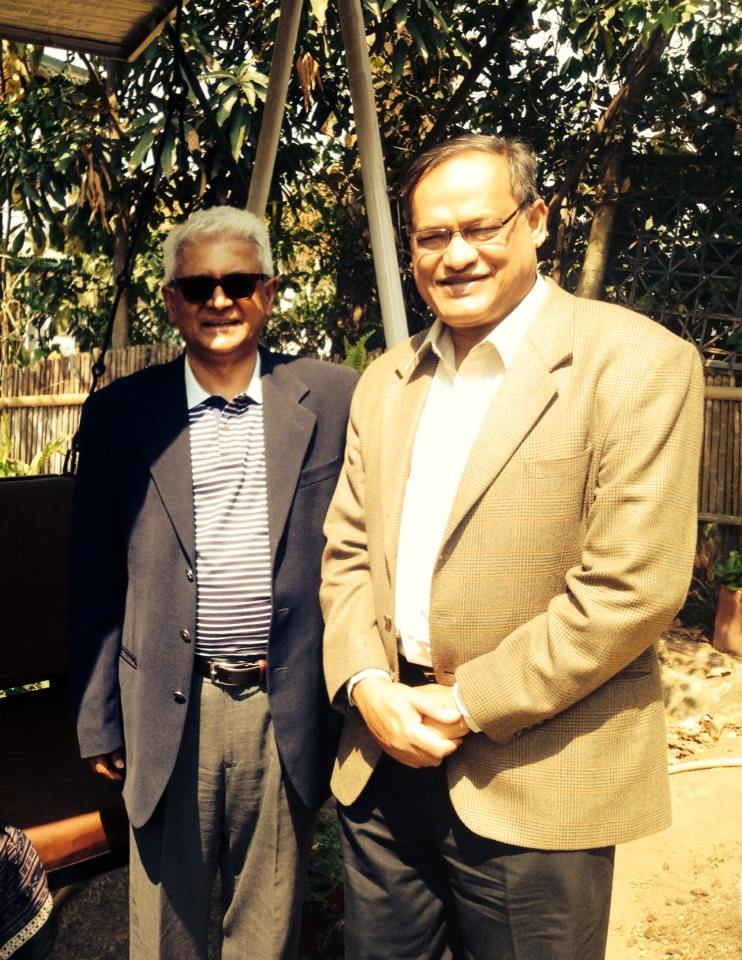
In many ways, Balagopal is retracing his steps after a very successful career as an entrepreneur by returning to places that hold meaning. After all, it was his desire to find real meaning in life that first drove his risky decision to quit the IAS nearly 40 years ago.
(Edited by Yoshita Rao)
Like this story? Or have something to share? Write to us: [email protected], or connect with us on Facebook and Twitter.
If you found our stories insightful, informative, or even just enjoyable, we invite you to consider making a voluntary payment to support the work we do at The Better India. Your contribution helps us continue producing quality content that educates, inspires, and drives positive change.
Choose one of the payment options below for your contribution-
By paying for the stories you value, you directly contribute to sustaining our efforts focused on making a difference in the world. Together, let’s ensure that impactful stories continue to be told and shared, enriching lives and communities alike.
Thank you for your support. Here are some frequently asked questions you might find helpful to know why you are contributing?


This story made me
-
97
-
121
-
89
-
167











